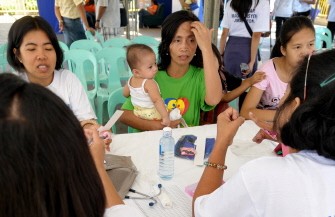SYDNEY, March 3, 2010 (AFP) - Mothers who work part-time are more likely to have healthier children than those who work full-time or who are not in the workforce, the author of an Australian study said Wednesday.

Children whose mothers worked part-time watched about an hour less television per week and had a healthier lifestyle, Jan Nicholson of Melbourne's Murdoch Childrens Research Institute said.
"The main finding that we have is that the children of mothers who worked part-time were healthier in their weight and that was related to watching less television, snacking less and being more physically active," she told AFP.
"And that was compared to children whose mothers were in full-time employment and also those whose mothers were at home full time."
The research, contained in the paper "Do working mothers raise couch potato kids?" examined the weight and lifestyle of some 2,500 children when they were four or five and again when they were six or seven.
The paper, published in the Journal of Social Science and Medicine, revealed that between 18 and 20 percent of children were obese or overweight.
Associate professor Nicholson said the research was designed to add to the debate about whether the west's childhood obesity epidemic was linked to mothers' increased participation in the workforce.
"And I guess what we are really doing is trying to see is, after we take account of everything else that we know is going on, is there really a relationship here? And the answer is, yes, there is."
The study, conducted with the University of New England and the Australian National University, said mothers with full-time careers may have less time to encourage physically active play or prepare home-cooked meals.
Nicholson said the study could not explain why stay-at-home mums were more likely to have overweight children but she said mothers who worked part-time might be better able to balance their work and family demands.
"They reschedule activities, sleep less and allocate less time to personal care and leisure to ensure that time with children is protected," she said.
























